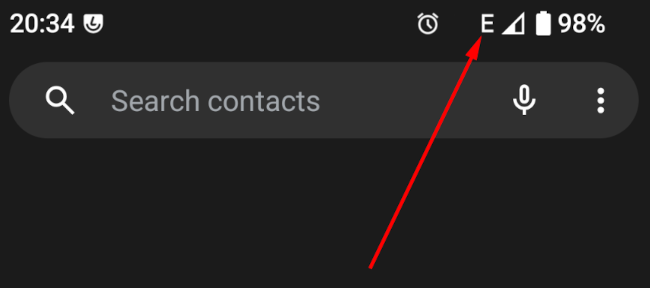No more Lineage OS on Samsung cellphones

My strategy for evicting Google from my technological life includes running alternative operating systems on my cellphones. I’ve used several of these ‘custom ROMs’, but mostly I’ve settled on Lineage OS or, occasionally, /e/OS. Nearly all of my drawer-full of cellphone handsets are Samsung devices. I like them because the have SD card slots, and many still have proper headphone jacks. They can also be great value to buy second-hand.
Sadly, the days of running Lineage OS – and any non-vendor firmware – on Samsung handsets appear to be drawing to a close, at least in the UK. Most likely other regions will soon be affected, if they aren’t already. Data services seem to be OK for now, but voice services are becoming increasingly erratic.
Why there is a problem
Until the roll-out of 4G technology, voice services used protocols that were specific to mobile telephony. They’re well-understood, and there are open-source implementations of these protocols in Android.
Voice services in the pre-4G world don’t use general data protocols like TCP/IP, as almost all information services now do. Increasingly, voice services use these data protocols, too, which is where the problem starts.
4G services carry voice using a protocol called Voice over LTE, or VoLTE. ‘LTE’ is the data-carrying specification for 4G (sorry: I’m simplifying all this a little, because I don’t want to give a lecture on telephony). VoLTE puts the digitized voice signal into a regular data stream, along with web browser traffic and all the rest of it, rather than using a custom protocol. Working this way does offer certain advantages, but it has costs, too.
For the record, VoLTE is part of a set of specifications called Internet Media Services, or IMS.
IMS is also well-understood, albeit rather complex and there are, again, open-source implementations in Android. Most handset vendors use these open-source implementations. The most notable exception is Samsung.
In its stock handset firmware, Samsung uses a proprietary implementation of VoLTE, to accompany its proprietary radio. Details of this radio are, so far, not well-known enough for the maintainers of alternative firmware to be able to implement VoLTE on it. Even if the information were available, implementation would likely be colossally difficult.
All this means that Lineage OS, and all the other non-vendor, community firmware, can’t do VoLTE on Samsung handsets. This means they can’t use 4G technology for voice communication.
The Lineage OS maintainer are well aware of the problem, and have been for some years. On their Samsung pages they say:
While it [ie., IMS] certainly is a standard, there is no standard implementation for it in the Android source code. Some vendors have their own implementation, which is not open-source and can therefore not be integrated into LineageOS’ code. Devices that rely on any of these implementations therefore lack all the features provided by IMS (VoLTE, VoWiFi, VoNR, etc.). This might or might not affect you, depending on your provider and region
Sadly, this laconic note understates the seriousness of the situation.
It’s worth bearing in mind, before putting too much blame on custom firmware, that many completely stock Android handsets don’t support VoLTE properly, either. Most likely there will be problems with any device more than about three years old. The difference, however, is that modern Samsung devices will work with Samsung firmware, but they’ll probably never work with anything else.
Why it’s a problem now (in the UK)
Although we’ve seen this problem coming, in most regions the lack of VoLTE support hasn’t been a show-stopper until this year, because of the continued availability of 2G and 3G services. Cellphones will switch to these services if they can’t use 4G – so long as they continue to exist.
Unfortunately, most of the world is gradually shutting down its 3G services. In the UK, most operators shut down 3G in 2024. O2 continued until April of 2025 so, as an O2 customer, I was sheltered from the worst effects of the shut-down for longer than many. However, with these services now gone, and with no access to 4G voice services, my Samsung handsets have become increasingly erratic.
They can still fall back on 2G services, but these also are becoming patchy. I can still make voice calls from the top floor of my house but, as I walk downstairs, there’s a point where audio shuts off, even though the call is notionally still active. I guess that’s the point at which I’ve passed out of range of whichever mast is still providing the vestigial 2G service.
How do you know whether you have this problem?
If you don’t have access to VoLTE services – either because of a limitation in the handset or in the network – you’ll see the phone switch to a lower grade of service when you try to make a voice call.
In my region, the level of service I mostly get is EDGE (appears as ‘E’ in the signal-strength indicator), although sometimes I get GPRS (‘G’) or HSPDA (‘H’). These are all data services associated with 2G.

This happens because, when the phone switches to one of these services for voice, it has to use them for data as well. Irritatingly, once the phone has switched service, it may not switch back, leading to a degraded data performance. I’ve found that switching airplane mode on and off restores data services, but it’s a nuisance that I have to.
As well as these obvious indications, there might be less obvious effects, like poor or absent call audio, or calls being dropped.
The extent of the problem
Right now, I still get reasonable voice calling in urban areas. Whether your de-Googled Samsung handset continues to be useable depends on the availability of 2G services. Unfortunately these, too, are being phased out, and in many regions (including mine) 2G provision is now less widespread, and less reliable, than 4G. Mobile operators have little incentive to keep these archaic services running. Complaining to your network that you have unacceptable voice calling over 2G doesn’t get much traction.
What can be done?
At this point, sadly, probably nothing. It’s unlikely that Samsung will release the source code for its VoLTE implementation, and there’s little enthusiasm for reverse-engineering it. Those of us who want to use a cellphone that isn’t a pocket data siphon will have to find alternative vendors. Ironically, Google Pixel handsets seem to offer the best VoLTE support, and are likely to be the best bet in future.
Closing remarks
I have to stress that this article applies only to Samsung handsets. If you’re using a Sony or Motorola device, you’re probably OK. What’s unfortunate is that Samsung handsets are popular with de-Googlers, because they lend themselves to off-line operation. Google’s Pixel phones have limited storage, because Google wants you to store all your data on their servers. That’s exactly the situation that we’re trying to avoid.
My long-term plan is to get away from smartphones entirely. The day I do that might be closer than I thought.
Have you posted something in response to this page?
Feel free to send a webmention
to notify me, giving the URL of the blog or page that refers to
this one.


